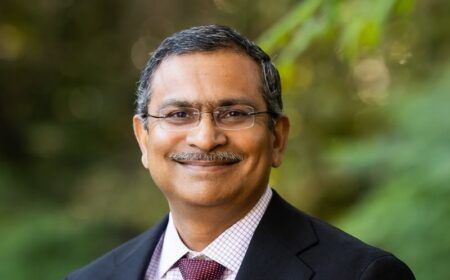The Connected Places Catapult, the UK’s centre of excellence and innovation in mobility, has announced the appointment of a new chair, Professor Greg Clark CBE, a world-renowned authority on urban innovation, future cities and mobility.
Prof. Clark joins the organisation on a renewable three-year mandate at a time of demonstrable growth and progressive change accelerated by the global impacts of the global Covid-19 pandemic. He takes over the role from Terry Hill CBE, who is stepping down.
Connected Places Catapult is the UK’s centre of excellence for innovation in mobility and the built environment. It was formed by the merger of the Future Cities Catapult and the Transport Systems Catapult in April 2019 to grow UK businesses and accelerate smarter living and travelling in and between the places of tomorrow.
It operates at the intersection between public and private sectors and between local government and transport authorities to help shape infrastructure investments, driving innovation and generating new commercial opportunities for the UK at home and abroad.
 “I am delighted to join Connected Places Catapult at this important time,” says Prof Clark (pictured). “Covid-19 has been a tragedy for our society and a major shock for our economy, but it can also propel us forwards by encouraging the adoption of new modes and patterns of travel, as well as more efficient ways to use buildings and deliver urban services and public spaces”.
“I am delighted to join Connected Places Catapult at this important time,” says Prof Clark (pictured). “Covid-19 has been a tragedy for our society and a major shock for our economy, but it can also propel us forwards by encouraging the adoption of new modes and patterns of travel, as well as more efficient ways to use buildings and deliver urban services and public spaces”.
The arrival of Professor Clark, who also works with HSBC as a global executive leading their work on cities and mobility and with Transport for London as a non-exec board member, marks the start of a new chapter for the Connected Places Catapult. Even before the advent of Covid-19, the Catapult had identified two key priorities for their work: to ensure that wider use of new technologies accelerating the path to zero carbon buildings and transportation in the UK, and the drive to level up the economic performance across all parts of the country.
Covid-19 has accelerated both the opportunity and the imperative to deliver those strategic goals. For example, it has instigated an immediate shift towards remote working which could transform the geography of labour and housing markets, potentially reducing congestion in the big cities and creating new opportunities for different parts of the country to attract or retain workers. Technology will play key roles in supporting and incentivising these new behaviours. Coupled with wider decarbonisation in the production of energy, food, construction materials, and consumer products through circularisation processes, these have the potential to support a better distribution of prosperity at the same time as reducing carbon emissions.
As Professor Clark says: “If we get this right, we can fashion a better spread of economic activity around our country, and we can reduce our carbon emissions at the same time. This requires new enterprises, and reformed business models, and Connected Places Catapult is here to help spark and nurture those changes, to write a new chapter for better connected places. I wish to thank Terry Hill for his exceptional leadership and continued gracious advice.”





